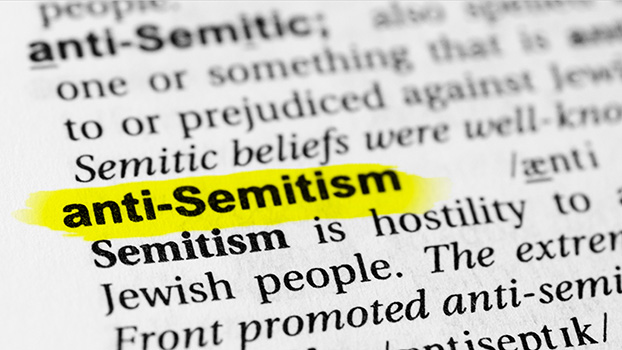The Quebec government has adopted the International Holocaust Remembrance Alliance (IHRA) working definition of anti-Semitism, becoming the third province to do so after Ontario and New Brunswick.
The definition was adopted as a declaration made in the National Assembly on June 9 by Environment Minister Benoit Charette, who is responsible for combating racism.
On June 4, the Coalition Avenir Québec government was unsuccessful in having a non-binding motion condemning anti-Semitism, which alluded to the IHRA definition, put before the legislature. Québec Solidaire (QS), the second opposition party, withheld the unanimous consent needed for a motion to proceed.
As a declaration, the government’s decision to endorse the IHRA definition did not require the consent of other members.
An earlier motion, on May 26, denouncing recent violence and threats against the Quebec Jewish community and calling for a “healthy and democratic debate on the Israeli-Palestinian conflict,” drawn up by Liberal MNA David Birnbaum, was unanimously passed by the National Assembly and, in fact, was seconded by a QS MNA.
The declaration is almost identical to the failed June 4 motion. Charette rose in the National Assembly and stated:
“More than 75 years after the end of the Shoah, anti-Semitism remains present in our societies. Violence, threats and aggression experienced by our Quebec Jewish community have, deplorably, gained momentum these past weeks, in our cities as well as on social media.
“It is our duty to take all the means possible in order to combat anti-Semitism. That is why the government of Quebec joins the renewed international effort in adopting, as many countries, parliaments and international organizations have done, the non-binding IHRA definition of anti-Semitism as a certain perception of Jews that may manifest itself as hatred toward them. The rhetorical and physical manifestations of anti-Semitism target individual Jews and/or their property, community institutions and places of worship.”
Charette reiterated that “peacefully demonstrating against the position of Israel in the Israeli-Palestinian conflict is not in itself anti-Semitism.”
The government’s action was hailed by Federation CJA and its advocacy agency, the Centre for Jewish and Israel Affairs, as a major milestone in gaining recognition of the gravity of increasing anti-Semitism.
“Today’s announcement follows a recent and unprecedented spike in anti-Semitic incidents,” CIJA Quebec vice-president Eta Yudin said in a statement. The National Assembly’s unanimous motion against anti-Semitism and the government’s adoption of the IHRA definition are “a clear affirmation of our elected officials’ recognition of the seriousness of the upsurge in hate targeting Jews and of the need for concrete action.”
Federation CEO Yair Szlak stated, “Our public authorities will now be able to rely upon a tool that enables them to clearly define anti-Semitic incidents in Quebec. The Jewish community salutes the commitment and foresight of the government of Quebec in the fight against anti-Semitism, a fight that concerns Quebecers of every stripe.”
The IHRA, an intergovernmental organization, formulated the definition in 2016. It was adopted by the Canadian government in 2019 as part of its anti-racism strategy.
Ontario adopted the definition last October by order-in-council and, in March, New Brunswick did so through a unanimous motion.
The definition has been adopted in Quebec at the municipal level by the cities of Côte St. Luc, Hampstead, Westmount, Dollard des Ormeaux and, most recently in April, by Montreal West, as well as by the Montreal borough of Côte des Neiges-Notre Dame de Grâce.
Montreal has twice deferred for further study any decision on the definition, first proposed for adoption by opposition councillor Lionel Perez.







